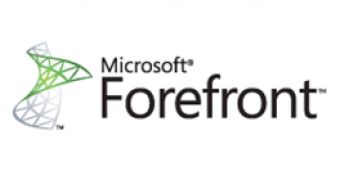Microsoft is offering an update version of the Cloud-based flavor of its security solution for Exchange Server. At the end of the past week, the refreshed variant of Forefront Online Protection for Exchange became available to customers currently leveraging the company Cloud services. Forefront Online Protection for Exchange is designed as a service offering protection for Exchange environments, be them on premise or also in the Cloud. Delivered under the Microsoft Online Services umbrella, FOPE is positioned as an alternative to the Forefront Protection 2010 for Exchange Server.
The difference of course, lies in the way that customers can access the offering. In this sense, FOPE is a hosted security solution, essentially a service that comes to the table with both anti-malware and anti-spam protection. At the same time, FOPE can be used in concert with Forefront Protection 2010 for Exchange Server, in order to provide additional security to Exchange environments.
“The new release of Forefront Online Protection for Exchange offers enhanced policy control capabilities (such as enhanced regular expressions support, custom dictionaries) for IT admins to more effectively adhere to compliance needs. In addition, it supports advanced globalization/localization by supporting 13 languages in the Admin Console, in documentation and via telephone support,” a representative of the Forefront team noted.
As with additional products, Microsoft tapped its customers for input on how to take FOPE to the next level. The company noted that customer feedback was key in the evolution of Forefront Online Protection for Exchange. Existing users of the service will be able to notice that the evolution of FOPE provides them with enhanced options when it comes down to building and managing custom company policy rules for filtering.
A member of the Forefront team enumerated some “enhancements with the new release: • Policy rule syntax options: The new release provides the option to use either a basic syntax, which is a mixture of comma-separated values (CSV) and simple string-wildcard syntax or Regular Expressions. • New Policy Rules e-mail header match option: FOPE now allows you to match e-mails based on e-mail header name and value. • More flexibility for outbound forced TLS rules: The Policy Rules editor now offers a check box to enable Opportunistic TLS for recipients not specifically identified by the policy rule. Custom policy rules filters now feature the following enhancements: the ability to upload dictionaries of custom-created lists or content for use in policy rules; the ability to apply the dictionaries across multiple rules and domains.”

 14 DAY TRIAL //
14 DAY TRIAL //